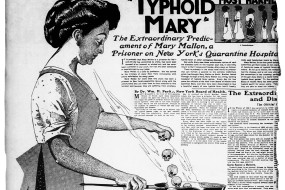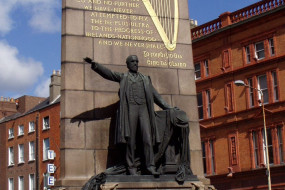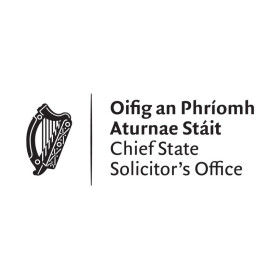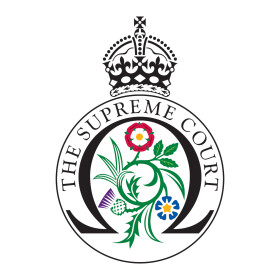Last week marked 80 years since the death of Mary Mallon, who, after over 26 years of imprisonment, died in an isolation hospital on North Brother Island in New York. Mary’s incarceration was not the consequence of being convicted of any crime, but was instead the reaction to her being identi
Opinion
Graham Ogilvy is disappointed by Mike Leigh’s newly released epic Peterloo. Peterloo, the brutal massacre inflicted on a Manchester crowd demanding political reform in 1819, was a milestone in the lengthy and, some would say, continuing, struggle to establish democracy in Britain and one of th
Patrick Walshe, partner in the employment and pensions group at Dublin firm Philip Lee, writes on the challenges posed to employers by social media. Like it or loathe it, social media is a key feature of modern life. With every day that passes, we live more of our lives on the internet.
Elaine Motion, executive chairman at Scottish law firm Balfour+Manson, writes on the significance of language in the Article 50 case currently before the Scottish courts. Language is critical in politics and the law, not least in the unfolding political and legal machinations of the Brexit process.
Dublin solicitor Wendy Lyon examines the new book by sex workers and activists Juno Mac and Molly Smith ahead of its Irish launch events in Cork tonight and Dublin tomorrow. From its striking cover – designed to resemble the outside of a Soho sex shop – and provocatively punny title, one
The secret ballot was introduced in Britain and Ireland in July 1972 by the Ballot Act of 1872, with the aim of mitigating the effects of bribery, intimidation, and coercion in elections. Section 2 of the Act outlined the new procedure for voting, which provided for voters to "secretly" mark their v
Peter Groarke, associate solicitor in the healthcare team at Ronan Daly Jermyn, writes on the legislative process. On 2 October 2018, members of Dáil Éireann discussed the proposed introduction of the Mental Health (Renewal Orders) Bill 2018.
Dr Vincent Power, head of the EU, competition and procurement group at A&L Goodbody, considers the likely outcome of the Brexit negotiations. Like all good soap operas, viewers of Brexit wonder whether there will or won't be a deal by 11pm Irish time on Friday 29 March 2019.
Employment law solicitor Richard Grogan of Richard Grogan & Associates writes on a recent High Court case on the importance of fair procedures. The issue of fair procedures in disciplinary matters has recently been decided by the High Court in a judgment by Mr Justice Bernard Barton delivered on
During the United Irishman Rebellion of 1798, one of the forms of torture used by the British on suspected Irish rebels – or Croppies – was pitchcapping. Victims were subjected to "caps" full of boiling tar, or "pitch", and gunpowder, forced on their heads and set alight. If the victims
Niamh Magee, associate in the corporate team at Carson McDowell, writes on a new investigation into celebrity and social media endorsements. Frequent users of social media platforms such as Instagram, Twitter and Facebook will be familiar with the hashtags “#spon”, “#af”, &ld
The BarristerBlogger, Matthew Scott, takes a comprehensive look at the European Court of Human Rights' recent blasphemy judgment and finds it severely wanting. The decision of the Fifth Section of the European Court of Human Rights in the case of E.S. v. Austria has been welcomed by Islamists i
Alan Desmond, lecturer at Leicester Law School, sets out the legal context to two recent high-profile deportation cases. During the past fortnight, grassroots campaigns against the deportation of two boys from Ireland have made the headlines at home and abroad while shining a light on a serious shor
With the sudden passing of Erskine Childers in November 1974, Cearbhall Ó'Dálaigh was nominated as the sole presidential candidate by the three main political parties of the time, becoming the fifth President of Ireland in December 1974. During Ó'Dálaigh's presidency, Lia
Donal Dunne, associate in the dispute resolution team at Eugene F. Collins, writes on a recent High Court decision clarifying Irish law on litigation privilege over witness statements. The High Court has clarified the extent to which litigation privilege exists over witness statements in Irish law i

























